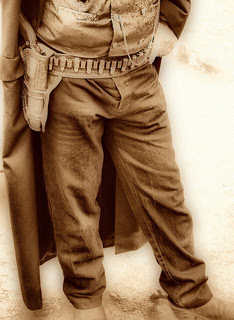I've been mulling over the benefits of positive thinking and came up with seven ways changing the way we think can help us not only be better writers but live happier lives:
1. Believe in your ability to succeed.
This is where optimists have the advantage. It sounds odd, but many folks who have succeeded, who have done great things in life, have had an unshakable confidence in their ability to succeed. They believed in themselves, in their ability.
You might be thinking, “Well, what if I don’t? Am I doomed?” Of course not! But if you truly believe you will succeed, I think it’s easier to brush it off when things go wrong.
2. Hope for the best, prepare for the worst.
One problem an inveterate optimist might run into is being so sure the best is going to happen that they neglect to prepare for failure. But there’s an easy remedy! Hope for and expect the best, but use your big brain to also prepare for the worst and to mitigate the effects on your writing if it happens.
3. Never give up! Pick a path and stay on it.
Let’s say you write a chick lit book set in the wild west and (surprise, surprise!) it doesn’t sell. Since you were probably hoping the book would sell this failure will come as a disappointment. But that doesn’t mean you should give up and stop writing. Instead, learn from your experience, from what worked and what didn’t.
For example, get someone you trust to give you their opinion why it didn’t sell. Also, ask them how you could improve your work. Perhaps you could invest in new cover art or use the services of a copywriter. Perhaps a complete rewrite is in order.
Whatever the case, the important thing is to keep writing. You’ve discovered something that doesn’t work, but I’ll bet you’ve also discovered a few things that do work. Apply that knowledge.
4. Think positive.
We each have the power to change how we view the events that happen to us. I’ve found folks tend to fall into one of two camps: people who view a glass as half full and those who view it as half empty (I am squarely in the ‘half-empty’ camp!).
Each of us has to decide how we want to frame the events that affect our lives. We can decide whether to interpret something as a total failure or as a learning experience that will help us do better next time.
5. Fake it till you make it.
You are what you do. If you’ve been, say, writing three novels a year for the past five years then you are definitely a writer. But what about when you start on that first novel? You probably wouldn’t feel like a writer, you might even feel like a fraud. You’d have all sorts of doubts, all sorts of anxiety. The solution: push through.
Hardly any successful writer felt like a writer when they started out. Sure they wrote every day, sure they honed their craft, but it’s a big step from that to being a professional writer, one who can (say) pay their rent with their work.
6. If you’re not making mistakes then you’re not doing anything.
I’ve written this on a sticky note I’ve taped to my monitor where I can see it. And it’s true. No one is successful in everything they do 100% of the time. It is SO EASY to let a mistake sidetrack you. Believe me, I know! When you make a mistake learn from it, then shake it off and keep going.
7. Prioritize your health, both mental and physical.
This isn’t about positive thinking, but I find it is intimately related to having a positive mental attitude.
Spending time writing is, of course, important but I’ve found that it’s vital to maintain my physical fitness through exercise. If I don’t get enough exercise I feel rundown. Also, it’s easier for me to get sick and if I’m sick then I can’t write.
The problem: exercising takes time that could be spent writing. And that’s painful! But it (for myself at least) is necessary; daily exercise has become a keystone habit, one that helps me lead a more fulfilled life and accomplish my other goals.
Every post I pick a book or audiobook I love and recommend it. This serves two purposes. I want to share what I’ve loved with you, and, if you click the link and buy anything over at Amazon within the next 24 hours, Amazon puts a few cents in my tip jar at no cost to you. So, if you click the link, thank you! If not, that’s okay too. I’m thrilled and honored you’ve visited my blog and read my post.
Today I want to recommend David and Goliath by Malcolm Gladwell. The book focusses on how to find your strength in what appears to be weakness. Inspirational! From the blurb: Gladwell examines stories of underdogs who succeeded brilliantly in an effort to “demonstrate how much of what is beautiful and important in the world arises from what looks like suffering and adversity.”
That’s it! I’ll talk to you again on Friday. In the meantime, good writing!



